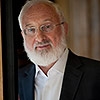Audio Version Of The Blog – 7/30/20
Listen to an Audio Version of the Blog
Download:MP3 Audio

Listen to an Audio Version of the Blog
Download:MP3 Audio
 Michael Laitman, On Quora: “What is the spiritual meaning of Tisha B’Av?“
Michael Laitman, On Quora: “What is the spiritual meaning of Tisha B’Av?“
Our world is governed by two forces, positive and negative, and we humans exist between these forces. In spirituality, the root of the negative force is called “Tisha B’Av” (“the 9th of Av“).
Even as far back as in ancient Babylon, the negative force always reveals around this special date. Whether it be the sin of the spies, the ruin of the First Temple, the exile of Babylon, the ruin of the Second Temple at Tisha B’Av, and the expulsion of Jews from the Land of Israel, or afterward from Spain, Germany and England, the people of Israel execute major sins and also receive punishments on Tisha B’Av.
Why do such sins and punishments take place?
It is all because we fail to bring the positive force in advance of the negative force that reveals at Tisha B’Av.
The First Temple was ruined due to our lack of connection, and the Second Temple was ruined due to unfounded hatred.
In each case, we encounter a shattering due to our growing distance from each other, which unleashes the negative force among our relations.
As Kabbalist Yehuda Ashlag (Baal HaSulam) writes:
“As the natural death of the individual results from disharmony among one’s organs, the nation’s natural decline results from some obstruction that occurred among its organs, as our sages testified (Tosfot, Baba Metzia, Chapter Two), ‘Jerusalem was ruined only because of unfounded hatred that existed in that generation.’ At that time, the nation was plagued and died, and its organs were scattered to every direction.” (Yehuda Ashlag, “The Nation.”)
On the contrary, our unity has the power to block the negative force from entering into our relations, and in its place, our unity lets the positive force shine through our connections, bringing about peace and harmony.
 Michael Laitman, On Quora: “What do you think about reincarnation?“
Michael Laitman, On Quora: “What do you think about reincarnation?“
There are two ways we can think about reincarnation: in relation to the soul’s development, i.e., the ascent from this world to the spiritual world, and also as the succession of generations in this world.
In terms of the latter, reincarnation is the passing down of genetic, material, perceptual and sensory information from one generation to the next.
For instance, the current generation’s children contain information accumulated by their previous generations. This is why children in each generation can quickly work out how to use the technology and tools of their generation.
Humanity’s development thus unfolds as a succession of generations, where we transfer material progress in science, technology, art and culture, as well as psychological advancements and an inner human message, to each successive generation.
In terms of our ascent from this world to the spiritual world, reincarnation starts from when we feel the awakening of a spiritual desire.
Such a desire is expressed as questions about the meaning and purpose of life.
Kabbalah describes this desire as the seed of our soul, and calls it a “point in the heart.”
Depending on how much we feel such a desire, it urges us to seek through various teachers and environments until we find one that we feel can guide us to attain our spiritual root.
Attaining our spiritual root, according to Kabbalah, is our life’s purpose.
By attaining our spiritual root, we receive clear answers to questions about the meaning and purpose of life—clear because they become expressed in us as sensations of attainment of the spiritual world, where our perception opens up to the complete fulfillment and knowledge that exists above the level of our current world, in our soul.
The journey of developing our spiritual desire and reaching the attainment of our spiritual root is by undergoing a series of spiritual reincarnations, until we reach our final destination from where we emerged.
By doing so, we complete our reincarnation cycle.
Kabbalists explain how such a process can take many lifetimes. Thus, if we discontinue this journey, we will return to it in future lives until we eventually attain the root of our soul.
Until we become granted with a spiritual desire, we accumulate suffering via the formerly-mentioned process of reincarnation at the level of this world.
The more we suffer in our development, the more it leads us to ask existential questions, differentiating our spiritual desire from our other desires, and adding to our yearning to rise above this world and attain our spiritual root.
 Question: In the fight against the coronavirus, it is clear that we have already received a global brain: information and experience diverge across all countries.
Question: In the fight against the coronavirus, it is clear that we have already received a global brain: information and experience diverge across all countries.
How can we reach a global heart? How do we feel others? And what feelings are you talking about? Don’t doctors who save lives by working 16 hours a day do it out of feelings? After all, many people have a choice not to work.
Answer: I don’t think doctors have a choice to work or not. I don’t think they themselves decide to stay at home. In principle, their profession and circumstances do not exclude self-sacrifice.
But the fact is that the time has come to understand that we are connected to each other and each country cannot take care only of itself separately because the virus practically has no borders.
How it is transmitted and how it arises, we still do not know at all. Therefore, absolutely everyone takes part in the fight against it. So far, this is the best achievement that the pandemic has brought us.
[268086]
From KabTV’s “The Post-Coronavirus Era” 4/30/20
Related Material:
What Is More Valuable: Human Life Or Economic Development?
The Virus Does Not Distinguish Between Nationality And Skin Color
What Else Does The Virus Want To Tell Us?
 Team Building Principles: “Buy Yourself a Friend”
Team Building Principles: “Buy Yourself a Friend”
Question: Fifth rule: Each member of the group should try to “buy friends.” This is an ancient principle that sages of all generations have written about a lot.
How should one buy a friend? Your attention, concessions, cancellation of personal interests? Or are there some other principles?
Answer: However you can buy him, buy him. Gifts, words, actions. Anything.
Question: That is, it is a tool. And the result? What will it give me?
Answer: You attract him to you. After all, a friend is someone who can support you, agree with you. Even based on purely selfish interests.
Question: Meaning, by my attention I buy him and thereby buy his support?
Answer: Naturally.
[268067]
From KabTV’s “Management Skills” 6/18/20
Related Material:
Team Building Guide, Part 5
Team Building Guide, Part 4
Team Building Guide, Part 3
 The Confrontation Between Two Movements
The Confrontation Between Two Movements
Question: Some time after the expulsion of Jews from Spain, spiritual movements began to flourish in Safed, and Kabbalistic knowledge among the masses began to spread.
But then the rapid dissemination of the new movement caused a response and resistance. Spiritual teachers of the traditional Lithuanian school began to oppose the spread of this knowledge with boycotts, slander to authorities, and physical extermination.
How does one explain this? Why did the teaching of the Ari, which should have already been embodied in humanity, suddenly fail and the fall began again?
Answer: This is not a failure, but a natural development of the method of correction, which cannot go by only one line. It goes precisely by two lines and is realized between them, in the third one.
As a result, it turned out that the Kabbalah of the Baal Shem Tov is the same Kabbalah of the Ari, which was understood by the masses. He organized a Cheder, that is, a place for classes. He recruited talented young people into his group, completely regardless of their status. And then large groups of students and leaders of Hasidic movements were formed from his students. They were especially popular among the Jewish population of Ukraine, Belarus, and Eastern Europe where their own schools were organized.
But at the same time, another school, which was founded by the Vilna Gaon appeared. He believed that people should be taught gradually, and only those who had achieved great knowledge in the Talmud, in a simple study of the Torah.
In his opinion, studying Kabbalah should be spread not among ordinary people, but among the elite to whom the spiritual worlds and other predestinations of humanity can be explained only after they had seriously mastered the “dry” Torah.
Question: Kabbalah speaks of love for one’s neighbor in its simplest, earthly form. What could be the danger of studying Kabbalah?
Answer: The fact is that when you simply talk about love for your neighbor, by that you let a person think that if he treats others correctly, then nothing else is needed. Therefore, there is some lightheadedness in the understanding of “love for one’s neighbor.”
This is how a movement was formed in Hasidism that if you love another person and seem to treat him correctly, then this is enough. Nothing more is needed, and you are already fulfilling your predestination.
And the Vilna Gaon claimed: “No, it is necessary to seriously study the Torah, the Babylonian Talmud, and carefully keep all the laws. Only after that one can study Kabbalah.”
Therefore, in the introduction to his great work, The Study of the Ten Sefirot, Baal HaSulam pays much attention to this. At the very beginning, he asks the question: “Is it really necessary to fully know all the great laws of fulfilling the Torah in our world and only after that study Kabbalah?
“Or is it enough to do it in parallel? Or even, perhaps, is it not at all necessary to know and obey all the laws so scrupulously? Because the Creator requires us to correct our hearts more than to fill our heads with all kinds of laws.”
So here we are in a state of great ideological contradiction. And it is very serious because it speaks of the method of the soul’s correction. Should it be taught to children from the age of thirteen or even earlier? Or maybe, it can be explained to women as well? Or only to great experts on the Babylonian Talmud?
This ideological contradiction was a necessary process and was brewing by itself.
[267965]
From KabTV’s “Systematic Analysis of the Development of the People of Israel” 8/5/19
Related Material:
The Age Of Enlightenment And Emancipation, Part 4
The Age Of Enlightenment And Emancipation, Part 3
The Age Of Enlightenment And Emancipation, Part 2
New Life 1258 – East, West, And The Integral World
Dr. Michael Laitman in conversation with Oren Levi
The world is divided into East and West according to the root of the soul of every nation. The nation of Israel is a third component, a special one which is neither East nor West; it is unlike any other nation. The West cannot learn from the East as they cannot be compared. In collective societies people are ready and willing to accept and obey laws whereas Western culture is rational. The West does not need to learn from the East or vice versa.
Each party needs to correct itself according to the root of its soul. We need to explain to Western people that, today, nature is obligating us to build an integral connection between different individuals for the sake of a better future for everyone. The fulfillment of the freedom of the individual is expressed by self-fulfillment in my connections with others. This is the formula for a perfect world.
[267089]
From KabTV’s “New Life 1258 – East, West, And The Integral World,” 7/1/20
 Question: To what extent and how will I become free from the chains of popular views and the impact of the external society if I study the wisdom of Kabbalah?
Question: To what extent and how will I become free from the chains of popular views and the impact of the external society if I study the wisdom of Kabbalah?
Answer: I can tell you from my experience that you totally cease to feel the impact of the external society and that you perceive it as childish babble because you try to implement the upper spiritual principles of nature.
Remark: People will say that it is arrogance.
My Comment: Let them say so; it makes no difference. When I reveal the upper goal of nature and it illuminates for me, different popular views have no effect on me and I am simply above them. If you know that this is the truth, you regret that others are unaware of this truth, but you do not descend to the beastly level of existence because of it.
Question: Aren’t you sorry that a person does not understand the truth?
Answer: I would like to bring the truth to the whole world so that people will see and hear what the wisdom of Kabbalah says and so that everyone will open their eyes, and then once they see the truth about the whole system and how nature is managed, they will decide what to do independently. I would like that very much, but unfortunately an individual can attain it only by his own efforts.
Question: But as a result of his efforts, does a person still come to a free, conscious decision? I mean, doesn’t he simply force himself to choose the path to the truth but seemingly feels it?
Answer: Yes, no one can do it for him. As we say, “Freedom is a conscious necessity.”
[257048]
From KabTV’s “Fundamentals of Kabbalah” 11/17/19
Related Material:
Spiritual Freedom Of An Individual
How I Educate Myself
How To Use Your Freedom
 The coronavirus has placed us into virtual reality, sending us home. Gradually, over time, we will get used to working from home, to new virtual relationships with colleagues at work, with banks, government agencies, with friends. We will build virtual circles of communication, closer and more distant, related to work and leisure.
The coronavirus has placed us into virtual reality, sending us home. Gradually, over time, we will get used to working from home, to new virtual relationships with colleagues at work, with banks, government agencies, with friends. We will build virtual circles of communication, closer and more distant, related to work and leisure.
You can play chess online; you can even join in sports together while each stays at home. A computer program gives the impression that we are together and do the same exercises.
However, this raises a question because people go to a fitness club to place themselves under the influence of that environment. If I miss a workout, I will get a reprimand from the coach. And in training, I must try to be no worse than others. How will all this happen in a virtual environment if I am alone at home with a computer program in front of me? I no longer feel the pressure of the physical group, and I will not try as hard.
I become a great egoist, I remain alone with myself in my microcosm, and I no longer have to reckon with anyone or explain anything to anyone. But I think it is good. This is how I begin to realize how selfish I was. In order to connect with the environment, I need to rise a little above my egoism. This is the reason I try to connect with others.
The fact that I am distancing myself from my former connections does not mean that I have become a greater egoist because I am doing it under duress because of the pandemic. I move away, following the instructions of doctors and the Ministry of Health, so as not to transmit the virus to someone and not get infected myself.
But when I was left alone at home, I had the opportunity to think about how I could approach others. The problem is that we are committing a crime in our thoughts. If our thoughts about each other were kind, then we would not be afraid of the coronavirus.
If we went out into public places with the thought of how not to harm others and knew how to protect them, we would never pass the virus from one person to another. Everything is determined by thought, intention.
We are now in virtual communication, each at a distance from the others. So let’s try to feel how much we are allowed to get closer to our neighbor, not because of the coronavirus, but because of another virus, because of my selfishness.
I have the right to use my egoism only to the extent that it does not harm my neighbor. If I can get closer without hurting you, then I will. And if I have selfish thoughts, then I cannot come close. In this form, you can already start measuring the distance between us in order to understand how far or close we really are. Closeness is defined according to my desire to bring you goodness from heart to heart.
How can we ensure that we fulfill our commitments to the group and show up for training on time and do all the necessary exercises together? I agree with my group mates that we are preparing for our virtual meeting so that everyone thinks kindly of the rest. And then everyone must check himself whether he can approach such a meeting.
If we have agreed to meet, then I leave the house and go to my friends. And at some point on the way, I begin to doubt if I can get closer? What if you can’t go on and I will harm them? Maybe I’m thinking about myself instead of thinking about them? This is how I begin to estimate material distance according to spiritual distance.
Then we begin to talk with friends only at spiritual distances, figuring out how close or distant we are to each other, connected or disconnected. And all this is about spiritual convergence or distance. It turns out that the virtual society helps us achieve spiritual connection. If we measure the distance from heart to heart in this way, then this is already a spiritual dimension.
We must establish between us such a measure of reference that will be spiritual, not material, that is, not in meters or kilometers, but in heart units of measurement, from heart to heart. Thus, we develop a special sensitivity between us. Only if I really wish my friend well am I ready to approach him and connect with him. In this case, we will never harm each other, and no virus can spread between us.
In order to achieve this practically, we need to develop a computer program that will let us train our attitude toward others the way we train muscles. It will show me how close or far I am to other people and how I can approach or distance myself from them. It should be obvious to me that I am not moving away materially, but only spiritually.
This is how we will begin to move from the material world to the spiritual world, where everything is measured only by the correspondence of properties, by the proximity of hearts.
The program should guide a person through a series of exercises, starting with the simplest, and becoming more and more complex, letting him understand his attitude to various actions, all kinds of other people’s desires. He will see if he is able to rise above his nature in order to connect more with his neighbor. So we will gradually get closer.
We need computer programs that will train a person, as if in a gym, in different life situations and teach him to rise above them for the benefit of others, and not himself. Through such exercises, he will see whom he cares more about: others or himself.
The program will present a person with various life situations one after another, guiding him through different sensory states and showing how ready he is to rise above his egoism for the good of others and take care of them without thinking about himself, or not ready for this. This will greatly change a person and will form new people out of us. It is possible to create such programs, you just need to show a little imagination.
[267926]
From KabTV’s “The Impact of the Environment in the Virtual World” 7/14/20
Related Material:
Mutual Guarantee—Now And Forever
With A Mask, I Don’t Recognize You!
Coronavirus Vaccine
 Question: What is the difference between orthodox people for whom there is nothing other than God and people who engage in studying the wisdom of Kabbalah for whom “There is none else besides Him?”
Question: What is the difference between orthodox people for whom there is nothing other than God and people who engage in studying the wisdom of Kabbalah for whom “There is none else besides Him?”
Answer: The difference is very simple; these two types of people are completely dissimilar. First, the wisdom of Kabbalah is not a faith or a religion. It engages in faith, but does not obligate anyone to believe. Instead, it calls for a person to reveal the Creator.
A religious person says, “I believe!”
“Why do you believe?”
“I was told to believe and it was explained to me, and so I believe what I was told.”
“Okay, that is your business.”
According to the wisdom of Kabbalah, on the other hand, faith means knowledge, attainment, feeling, sensation. It is not what we call faith in our world, when I don’t know whether something is true or not, but I accept it and live as if it is so. Who can prove it? No one. Is it true or not? There are as many views as there are people.
There is thus no connection between the wisdom of Kabbalah and religion. On the contrary, the wisdom of Kabbalah is completely unrelated to religion. It is aimed only at revelation, at knowing and feeling, not at things someone tells us about. There is a huge difference.
[257073]
From KabTV’s “Fundamentals of Kabbalah” 11/24/20
Related Material:
The Three Parameters Of Faith
Kabbalah And Beliefs, Part 3
Faith Against Reason